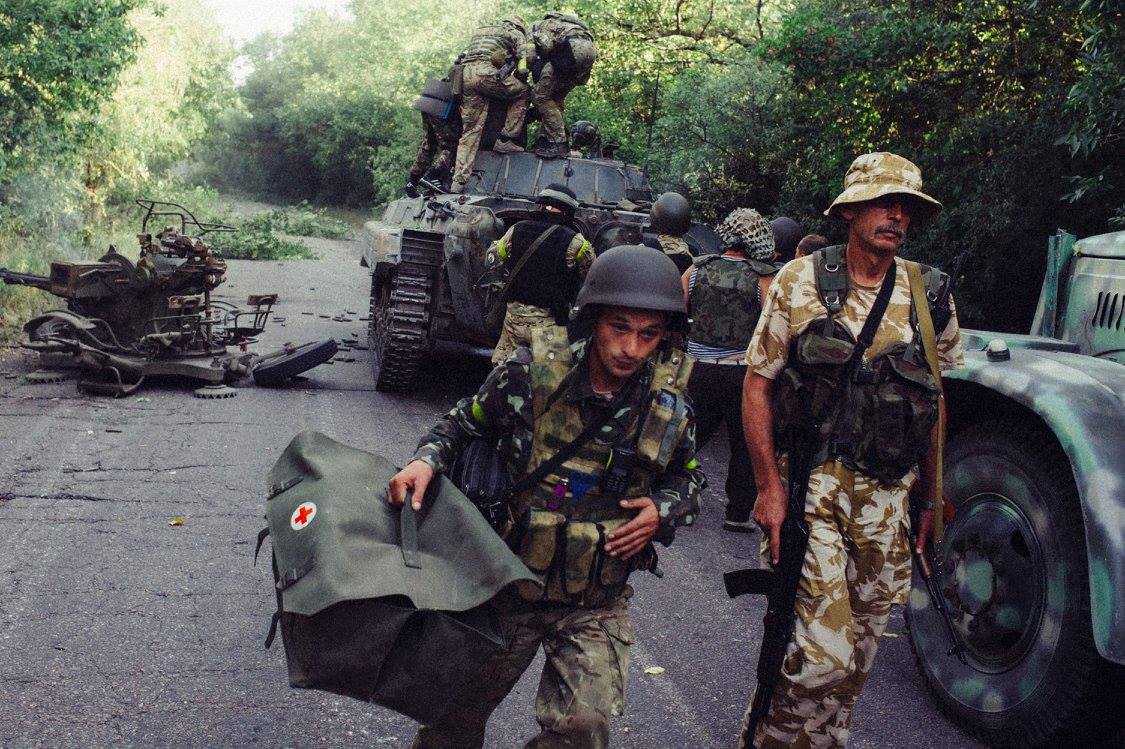At the same time, the Committee consists mostly of MPs from Zelenskyy’s party. It is unclear whether their conclusions are a political game or an effective accusation, given that no evidence to support the claim was presented yet.
Ilovaisk became one of the most bloody pages of the contemporary Russo-Ukrainian war. Ukrainian forces were surrounded by the regular Russian army on 24-26 August 2014. Ukrainians were promised a safe exit by Vladimir Putin himself but were in fact shelled with heavy weapons in the morning of 29 August. While the Ilovaisk battle became the apparent proof of the direct involvement of Russian troops in the occupation of Donbas, part of the journalists and military volunteers also talked about the guilt of Ukrainian military leadership and Poroshenko himself, saying they disregarded intelligence data and even intentionally sent Ukrainian volunteers to the trap. Subsequently, the tragedy also became a hot political topic.
In a previous 2020 official report, the Prosecutor General Office names Russia as the only reason for the tragedy. It transferred the evidence of Russian military crimes near Ilovaisk in August 2014 to the Prosecutor’s Office of the International Criminal Court.

Yet, on 19 May 2021, the Ukrainian Parliament also created its Temporary Investigative Commission (TSK) to investigate the issue of alleged guilt of Ukrainian military leadership in the tragedy. Members of the Commission included eight MPs from Zelesnkyy’s Servant of the people, one MP from Oppositional Platform, and one MP from the Trust group. The composition of the commission raised doubts about its objectivity given that not all political parties participated. Nonetheless, on 15 November 2021, the Commission published its preliminary report. It says that
TSK believes that the main reason that led to the Ilovaisk tragedy is an inadequate organization of the country's defense as a system, i.e. political, economic, social, military, informational, legal, organizational, and other measures to protect the state in conditions of armed aggression.
The TSC identified the following factors, which largely determined the Ilovaisk events:
- a) non-imposition of martial law, which led to the disorganization of military action;
- b) erroneous personnel and other decisions of the political and military leadership;
- c) failure of political and military leadership to take comprehensive measures to unblock the Ilovaisk group and organize a corridor for withdrawal of Ukrainian troops from the encirclement, which resulted in the loss of hundreds of lives.
TSK found that the leadership of the Ministry of Defense of Ukraine and the General Staff of the Armed Forces of Ukraine during the Ilovaisk tragedy systematically opposed and blocked the work of the previous Parliamentary Investigative Commission.
The report also says that the tragedy had “heavy political consequences” because it “became the background of the meeting of the Presidents of Ukraine and the Russian Federation, held on 26 August 2014 in Minsk and, to a large extent, determined the signing on 5 September 2014 of Minsk arrangements.”
Although the tragedy indeed had an impact on the Minsk agreements, the mentioned meeting of presidents happened 3 days before the tragedy.
Regarding the “measures of political and military leadership to unblock the Ilovaisk group,” some 250 soldiers were sent to help unblock the group on 27 August, although their troops were heavily shelled by Russians on 28 August. There was also air support by two Ukrainian SU-25М1.
Whether these measures were all that could be done under that conditions remains an open question.





